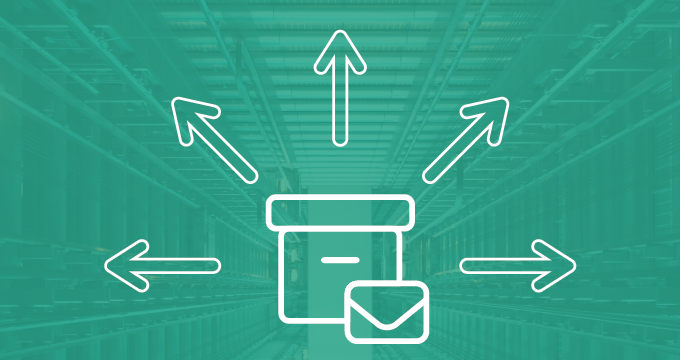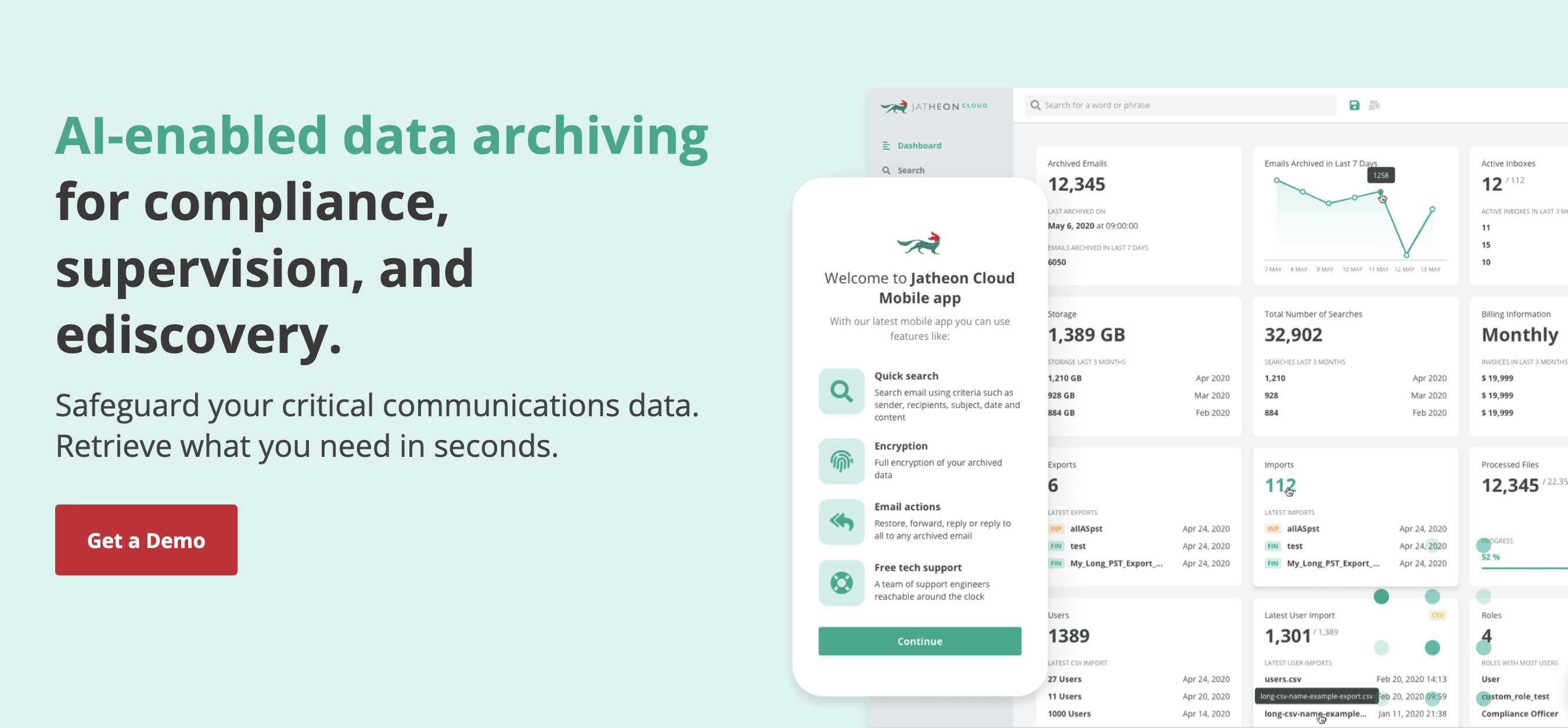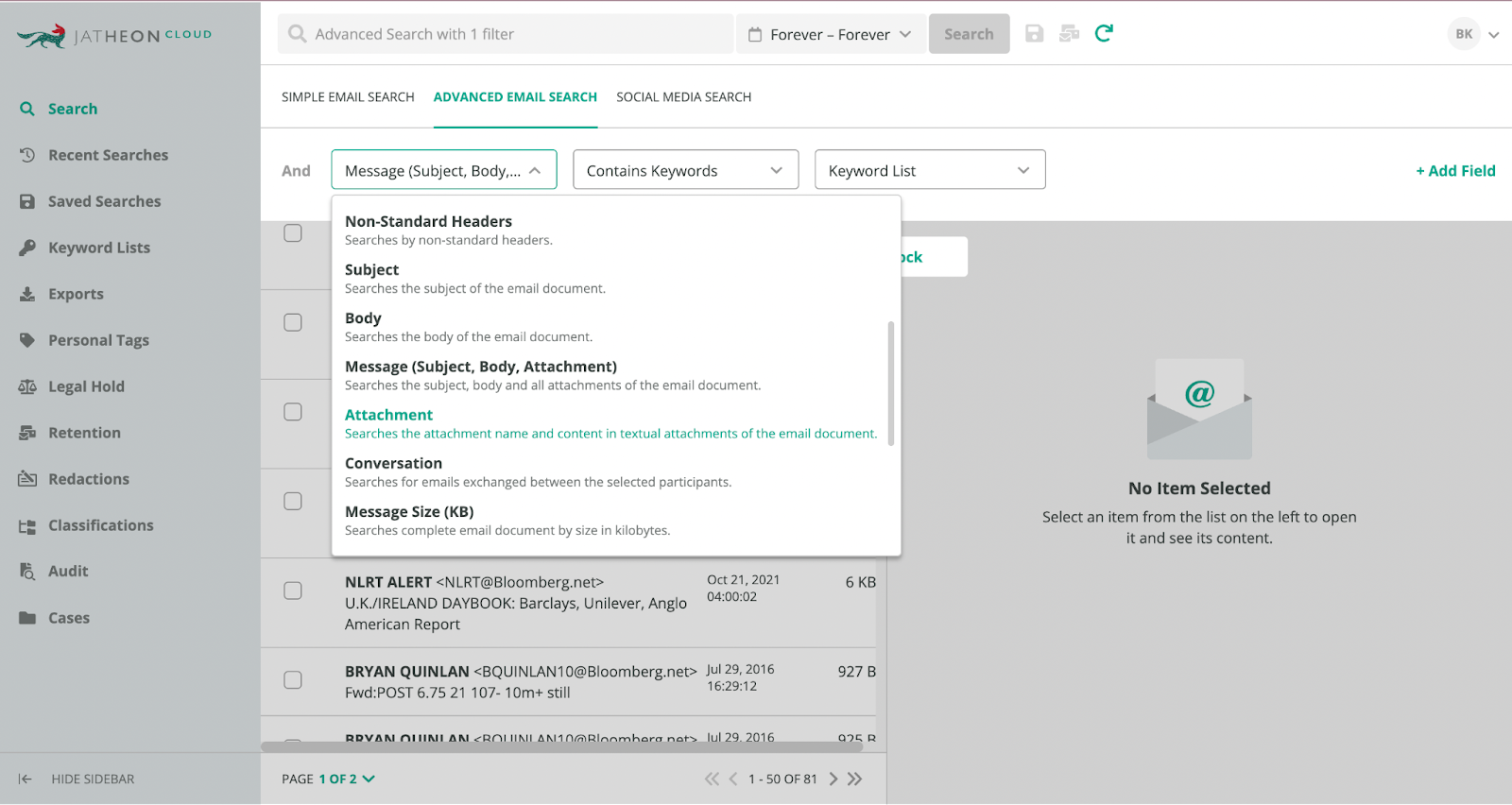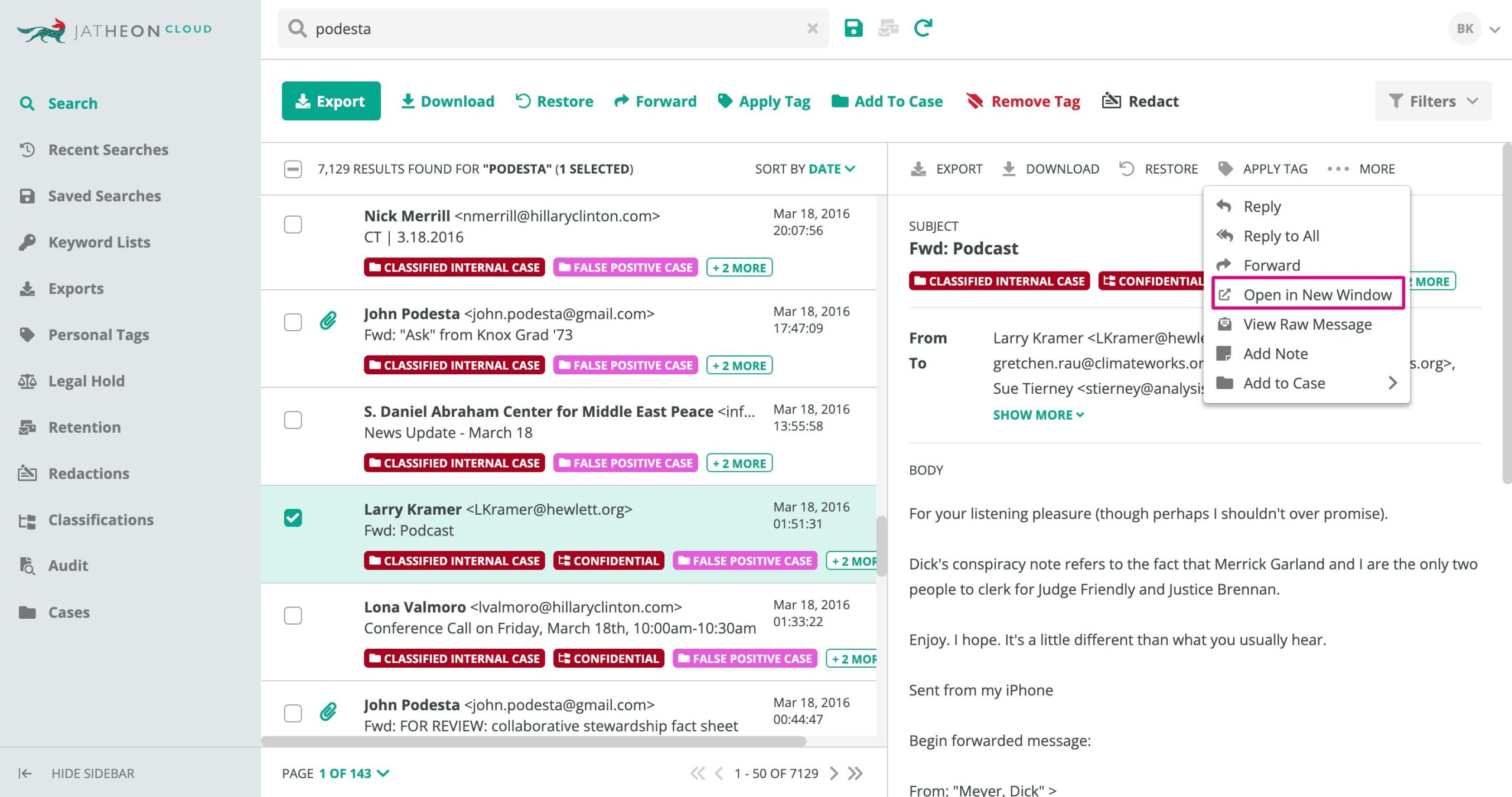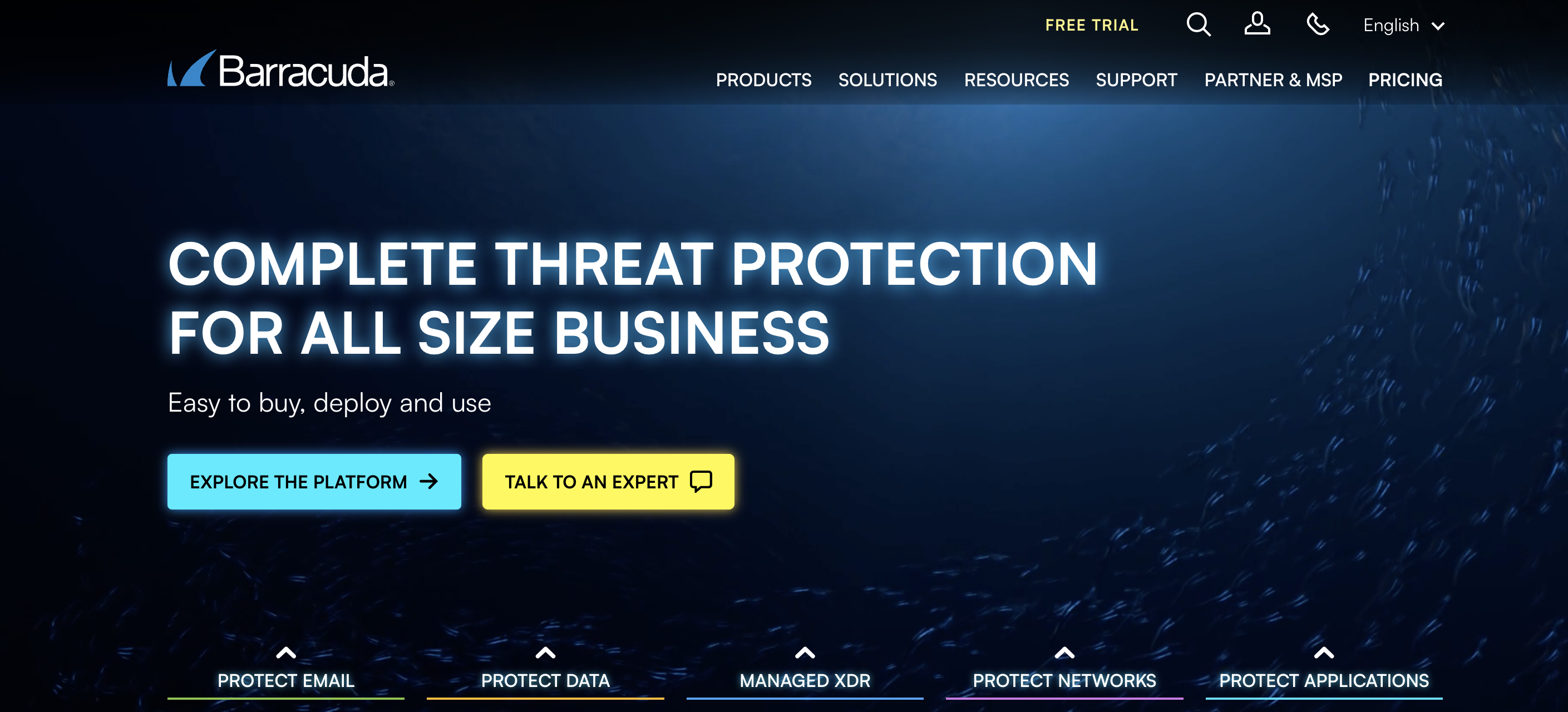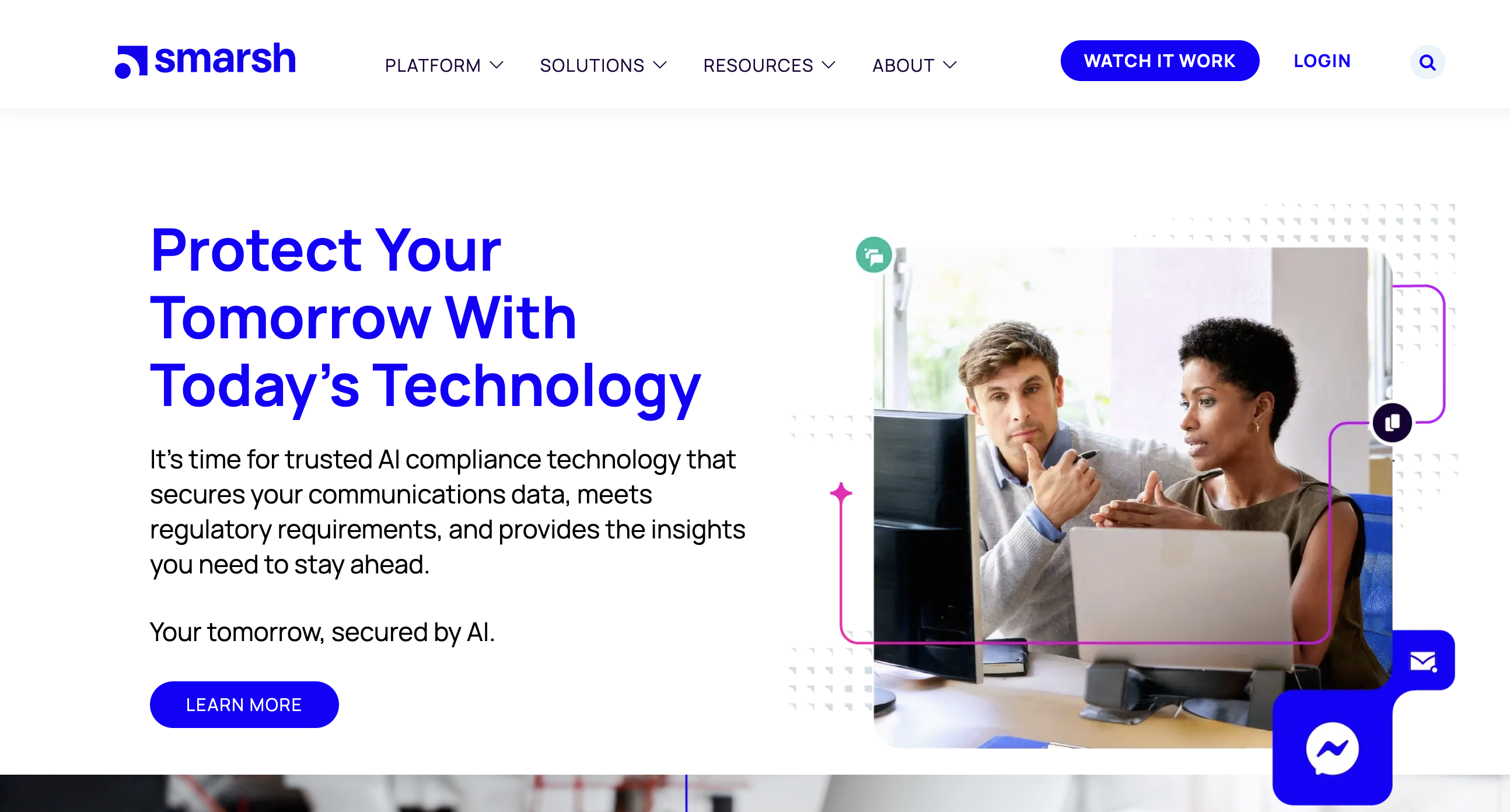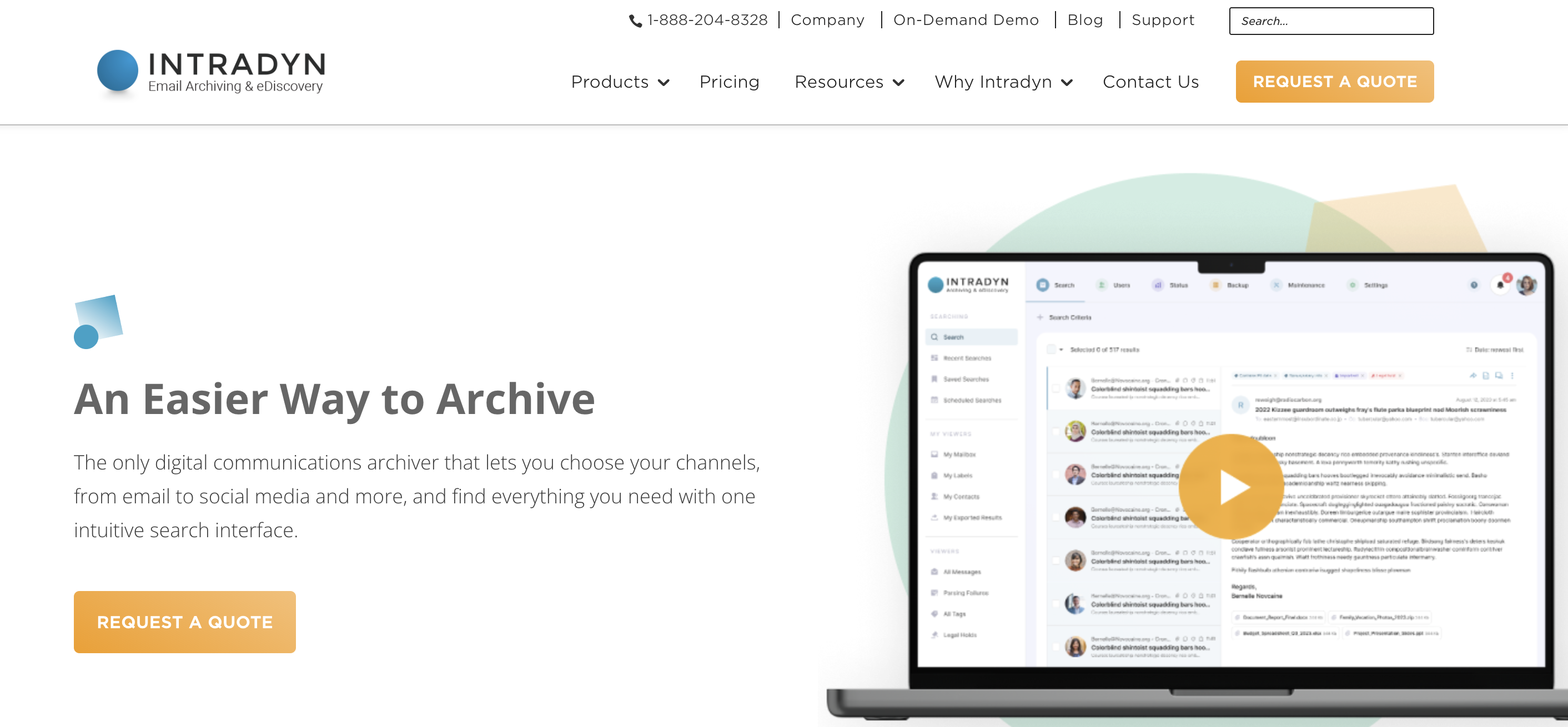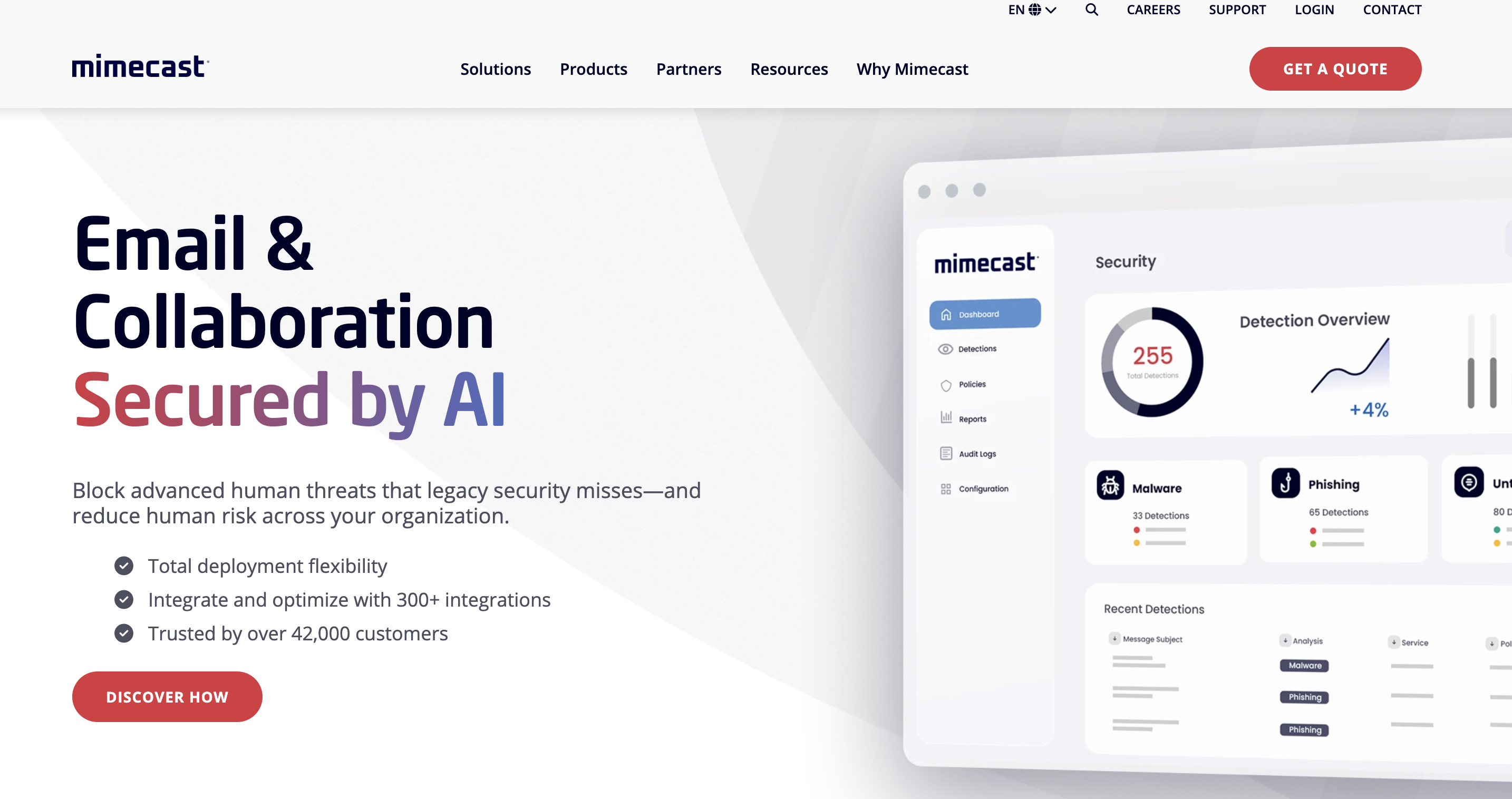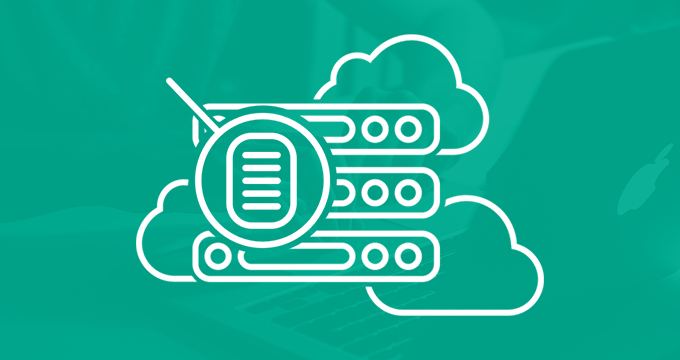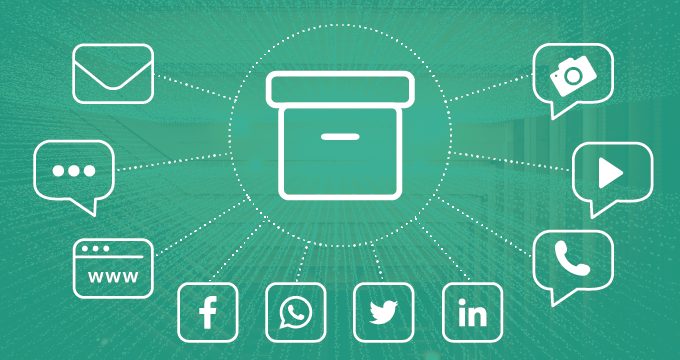Created by the tech giant, Google Vault has, for many years, been a favorite email archiving solution among US government organizations.
It was especially favored by school districts because of its free inclusion in the Google for Education package.
But in recent years, many companies and government agencies have been looking for a Google Vault alternative.
This article will help you understand:
- What is Google Vault
- What are its limitations
- Why you should consider a Google Vault Alternative
- What are the top five choices you have when shopping for your next email archiving solution
What Is Google Vault?
Google Vault is a tool included with Google Workspace (formerly G Suite). It helps organizations store, search, and manage electronic communications like emails, chat messages, and files saved in Google Drive. It’s used in organizations and businesses that rely heavily on Google tools.
Google Vault archiving lets you keep a copy of messages and files, even if users delete them.
This is useful for staying compliant with data regulations or responding to records requests.
Vault also supports Google Vault ediscovery, which means you can search through archived data to find specific information, place legal holds, and export records for audits, legal cases, or investigations.
Another key feature is data retention policies. These let you decide how long certain types of data are saved. For example, you can keep all emails for seven years to meet industry regulations, or delete certain chats after 30 days if they’re no longer needed.
However, the retention rules in Google Vault are not as flexible or detailed as in some more advanced archiving tools.
While Google Vault works well for basic archiving needs, it may fall short for organizations that use more than just Google apps or need stronger compliance and legal tools.
Why You Need a Google Vault Alternative
At first glance, Google Vault seems to have all the features one might need — retention, legal hold, advanced search, exports, and audits.
It comes freely included in the Google Workspace plans starting from $6.30 per user.
But when you take a closer look, it uncovers a couple of serious issues that users have noticed and are opting to go with Google Vault competitors to solve these problems.
From an archiving perspective, Google Vault just isn’t an optimal solution for email archiving in regulated industries and hasn’t been for quite some time.
Let’s go over the most significant limitations of Google Vault.
Google Vault only supports Gmail
The key issue with Google Vault is that you can only archive Gmail messages. And while Gmail is the most widespread email provider, it is not the only email platform used by businesses and organizations in the US.
Although 60% of mid-size companies and 80% of U.S. school districts use Google Workspace, many businesses use different email services, like Outlook.
In other words, using Google Vault means you’re limited to Google Workspace tools and can’t archive important data from other communication channels.
Google Vault can’t archive social media
Over the years, social media has started to make the bulk of business message exchanges, and it’s only growing.
While 61% of employees prefer email communication, there’s a huge 39% gap in which employees discuss crucial business information over different channels.
There’s tons of information flowing on LinkedIn, Facebook, Instagram, and YouTube, but Google Vault can’t go outside the Google Workspace, meaning you can’t retain social media communication and content from your official pages and profiles.
Social media is considered official business records, and as such, you need to monitor, capture, and archive it in its entirety to be in line with FINRA, HIPAA, SOX, and FRCP.
With Google Vault, you would be forced to purchase another archiving software in order to capture social media content and be compliant, which adds to the list of your IT costs.
Google Vault can’t archive mobile and app messaging
Chat apps and mobile messaging tools have gained in popularity over recent years, as confirmed by the reports of the Radicati Group, which cited strong growth and forecast an even stronger rise in the number of users by 2025.
Platforms such as WhatsApp, Slack, and Microsoft Teams are among the most popular communication channels for business.
In 2018, WhatsApp introduced WhatsApp Business, which has already managed to amass over 500 million users, requiring businesses to invest in WhatsApp archiving. At the same time, industry data shows that around 600,000 companies with three or more employees use Slack.
iMessage, while often seen as a personal messaging app, is frequently used for work communication, especially in healthcare, education, and small business environments, where iMessage archiving is becoming a growing compliance concern.
All these users exchange millions of messages that all need to be archived, stored, and accessible.
Google Vault doesn’t have the option to archive any mobile or app communication which puts any organization using it in danger of non-compliance.
Limited ediscovery options
While Google Vault is meant to help businesses with Gmail ediscovery, it just doesn’t have the right tools to manage stored messages efficiently, create email retention policies and tags, nor index and precisely retrieve information.
With the rise in the amount of data generated each day, it is only natural that the number of ediscovery requests also rises.
To navigate that much data, businesses are opting for many third-party services that specialize in ediscovery.
Google Vault just can’t compete with features like cases, classifications, and integrated redaction that these competitors offer to their users.
No central archiving database
Bottom line: Google Vault doesn’t provide a solid overall archiving experience.
Yes, it can support the capturing and storing of some of your business data (Gmail), but it doesn’t allow you to manage all your archiving needs from a single place.
Why is this important?
The archiving industry is becoming more demanding and requires you to optimize your processes to meet all regulatory requirements.
This means archiving data from various sources and being able to manage it, which becomes impossible if it’s scattered around 2-3 archiving platforms.
Combined with Vault’s limited archiving features and support for only one communication platform, this pushes many organizations to consider Google Vault competitors for a more capable alternative.
Let’s look at the top 5 Google Vault alternatives that will solve your archiving challenges.
Five Google Vault Alternatives to Consider
Before diving into the list, let’s establish what a good Google Vault alternative needs to have for you to consider it as an option for your organization:
- Multi-channel archiving — An option to archive communication from different emailing services, social media, and applications, as well as mobile messaging.
- Efficient search and retrieval — Advanced search filters for all channels, making it easy to find exactly what you are looking for quickly.
- Compliance features — Ability to classify and retain data, enhancing your organization’s ability to comply with laws and regulations.
- User-friendly interface — Design intuitive for first-time and experienced archiving users.
- Scalability — Ability to easily scale with the growing number of inboxes and data without compromising performance.
- Security — Prioritizes security by offering the latest encryption technology, protection against unauthorized access, and role access control.
- Mobile accessibility – Ability to access your archive and perform different actions while on a mobile device.
Now, let’s get into the list with our top choices:
Jatheon
Jatheon has an AWS-based data archiving solution tailored for businesses within regulated industries.
It offers businesses a unified archiving solution that covers all communication channels, including email, social media, WhatsApp, iMessage, and text Message archiving, all stored in a single, easily searchable database.
With its modern UI and mobile access, it allows full customization to data access, administration roles, and an easily scalable database.
One of its key selling points is its complete compliance and ediscovery feature set, including Advanced Search (with 20+ search criteria, proximity, and fuzzy operators), integrated redaction feature, legal hold and retention tags, and automated retention policies.
Recent enhancements include AI‑driven classification and search to speed up ediscovery, stronger migration tools for switching from legacy systems, and administrative features like advanced export formats and group audit logs.
These improvements reinforce Jatheon’s suitability for regulated industries with complex archiving and compliance needs.
Check out Jatheon’s complete feature breakdown to make a better decision.
Barracuda
Barracuda is among the leading email archiving solutions in the market and comes with a number of complementary services including email security, firewalls, network and application security, as well as data backup functionalities.
Barracuda’s key archiving feature, Barracuda Message Archiver, allows users to expand their storage capacities through stackable appliances as well as carry out combined searches.
One of its strong points is easy access via mobile and desktop, as well as free hardware refresh (though this depends on your pricing plan). Barracuda also offers cloud storage capacities to be used as second-tier storage.
On the downside, users often report an outdated, unintuitive interface and quirky search behavior that slows down legal and FOIA workflows. Advanced searches require non-standard syntax, and results are capped at one million items, which complicates larger matters.
Exports can be time-consuming and can break into dozens of ZIP files, with bulk-export support reportedly costing extra.
As organizations grow, they may need to replace the appliance entirely, adding unplanned downtime and costs. Installation and upgrades also require manual steps and expert help, making Barracuda harder to manage than cloud-native alternatives.
For teams that prioritize speed, flexibility, and low-effort compliance, these limitations can make Barracuda a tough fit in side-by-side evaluations.
| Check out our comparison between Jatheon and Barracuda and find out which one is right for you. |
Smarsh
Smarsh has been a global leader and a recognizable name in the archiving industry for a while now. The company mainly focuses on the public sector and the financial services industry.
Smarsh gets points for the variety of services and capabilities it offers (various packages and the capacity to archive social media, text messages, and websites) and the ability to export data to multiple formats.
As a cloud-based platform, Smarsh offers bottomless storage that can be scaled up and down based on the organization’s needs. That said, user experience and support concerns have become more frequent in recent years.
Customers report a confusing interface with a steep learning curve, requiring users to switch between separate portals and rely heavily on support documentation. Search performance can be slow, especially on large data sets, and downtime issues have been well documented. The suspension of Smarsh’s TeleMessage service in May 2025 following a suspected breach has also raised security concerns.
Support and onboarding processes draw frequent criticism, with users describing long wait times, poor communication, and high upfront setup costs.
Licensing is often complex, with add-on features like DLP priced separately, contributing to a high total cost of ownership. Non-U.S. teams face language limitations, and the lack of mobile apps adds friction for legal and compliance teams working on the go.
Given the rising frustrations with usability, reliability, and support, many organizations are actively exploring more flexible and transparent Smarsh alternatives.
Intradyn
Intradyn is a key player in the archiving industry whose solution can archive various types of data (email, social media, and text messages), and is available in three deployments: on-premise, cloud, or virtual.
Intradyn’s Email Archiver offers a great solution for archiving all of your email communication with great compliance and ediscovery capabilities.
Often praised for features such as the user interface, retention policies, redaction, and backup, Intradyn is a great option for businesses of all sizes.
As for its limitations, users report performance issues when working with large mailboxes or attachment-heavy archives, which can slow down search and retrieval.
While the platform markets itself as intuitive, initial setup and system integration, particularly with mail servers or PST imports, can require more IT involvement than expected.
Compared to higher-end competitors, Intradyn offers fewer customization options for retention policies and has more limited reporting and analytics features. Some reviewers also point out that the user interface, particularly around reporting dashboards, could be improved. Scalability can be a concern in large or complex environments, especially if there’s a need for deep integrations or massive storage volumes.
Additionally, Intradyn uses message stubbing to reduce storage usage, but doesn’t support direct PST export, making large data transfers more cumbersome and often dependent on third-party tools. For organizations subject to strict data sovereignty requirements, the cloud model may also raise questions around jurisdiction and vendor control.
In short, while Intradyn delivers strong core features for compliance archiving at a competitive price, it may not scale as cleanly in large enterprise settings or meet the needs of teams that require advanced legal workflows or highly customizable controls.
| Check out our comparison between Jatheon and Intradyn to find out which solution is right for your business. |
Mimecast
Mimecast is a well-known archiving provider that primarily serves organizations using Microsoft 365. Its Cloud Archive product offers secure, scalable email archiving with features designed to support compliance, continuity, and business resilience.
Key strengths include fast journaling, integration with Microsoft Teams, tamper-proof storage, and global data centers. Mimecast is often chosen by mid-to-large enterprises looking to enhance native M365 capabilities with stronger archiving and basic ediscovery tools.
However, Mimecast’s focus is mainly on email. It doesn’t support archiving for mobile messages like SMS, WhatsApp, or iMessage, or platforms like social media and voicemail. For industries that need to keep records from all communication channels, such as finance or healthcare, this can be a major limitation.
The built-in ediscovery tools are fairly basic and may not meet the needs of legal or compliance teams handling complex investigations or audits. Retention policies also lack the flexibility offered by some competitors, and Mimecast doesn’t allow customers to manage their own encryption keys, something many organizations need for security and data privacy.
Exporting large amounts of data can be slow and expensive, with a $5-per-gigabyte hostage fee if you’re leaving the service. Users have also noted that the interface feels outdated and that the pricing model can be confusing, with extra charges for advanced features like long-term retention or compliance tools.
Mimecast works well for organizations that are fully invested in Microsoft 365 and have straightforward archiving needs. But for those with more complex requirements or broader communication channels to cover, it may require extra tools or come with higher long-term costs.
| Check out our comparison between Jatheon and Mimecast to make an informed decision about which archiving solution is best for you. |
Summary of the Main Points
- Google Vault is widely used in education and government due to its free inclusion with Google Workspace for Education, but it only supports Gmail and Google Drive.
- It lacks support for other major platforms like Outlook, iCloud, WhatsApp, iMessage, Slack, Microsoft Teams, and social media, making it unfit for multi-channel archiving.
- Vault’s ediscovery tools are basic, with no advanced filtering, tagging, redaction, or review features required for legal or compliance-heavy environments.
- There’s no unified archive management, forcing organizations to juggle multiple tools, which adds complexity and increases IT and compliance costs.
- Jatheon offers full multi-channel archiving, including email, social media, and mobile messaging, with powerful search, redaction, legal hold, and flexible retention policies.
- Barracuda supports email archiving with hardware and cloud options, but is hampered by a dated interface, search limitations, and complex export workflows.
- Smarsh provides wide data coverage, but faces user complaints about poor support, slow performance, high costs, and a confusing interface.
- Intradyn is a solid mid-market option with support for multiple data types, but struggles with scalability, reporting, and performance on large or attachment-heavy archives.
- Mimecast is strong for Microsoft 365 users, but lacks support for mobile, social, and voice data, has basic ediscovery features, and includes hidden costs and export fees.
| Check out how Jatheon Cloud’s advanced features can help you safely preserve all business records for compliance and legal support. |
FAQ
Why are organizations moving away from Google Vault?
Many organizations are finding that Google Vault’s limited data coverage, basic ediscovery tools, and lack of support for non-Google platforms make it unsuitable for compliance-heavy environments.
Can Google Vault archive Microsoft Teams, WhatsApp, or iMessage?
No. Google Vault only supports Gmail, Google Chat, and Google Drive. It does not archive Microsoft Teams, WhatsApp, iMessage, or other mobile and chat platforms.
Is Google Vault compliant with regulations like HIPAA, FINRA, or FOIA?
Google Vault offers basic retention and legal hold features, but it does not fully meet the compliance needs of heavily regulated industries without additional tools or workarounds.
How hard is it to migrate from Google Vault to another archiving solution?
Migration complexity varies by provider. Some vendors, like Jatheon, offer dedicated migration tools and support teams to ensure a smooth and legally defensible transition.
Read Next:6 Proven Strategies to Cut Ediscovery Costs |
